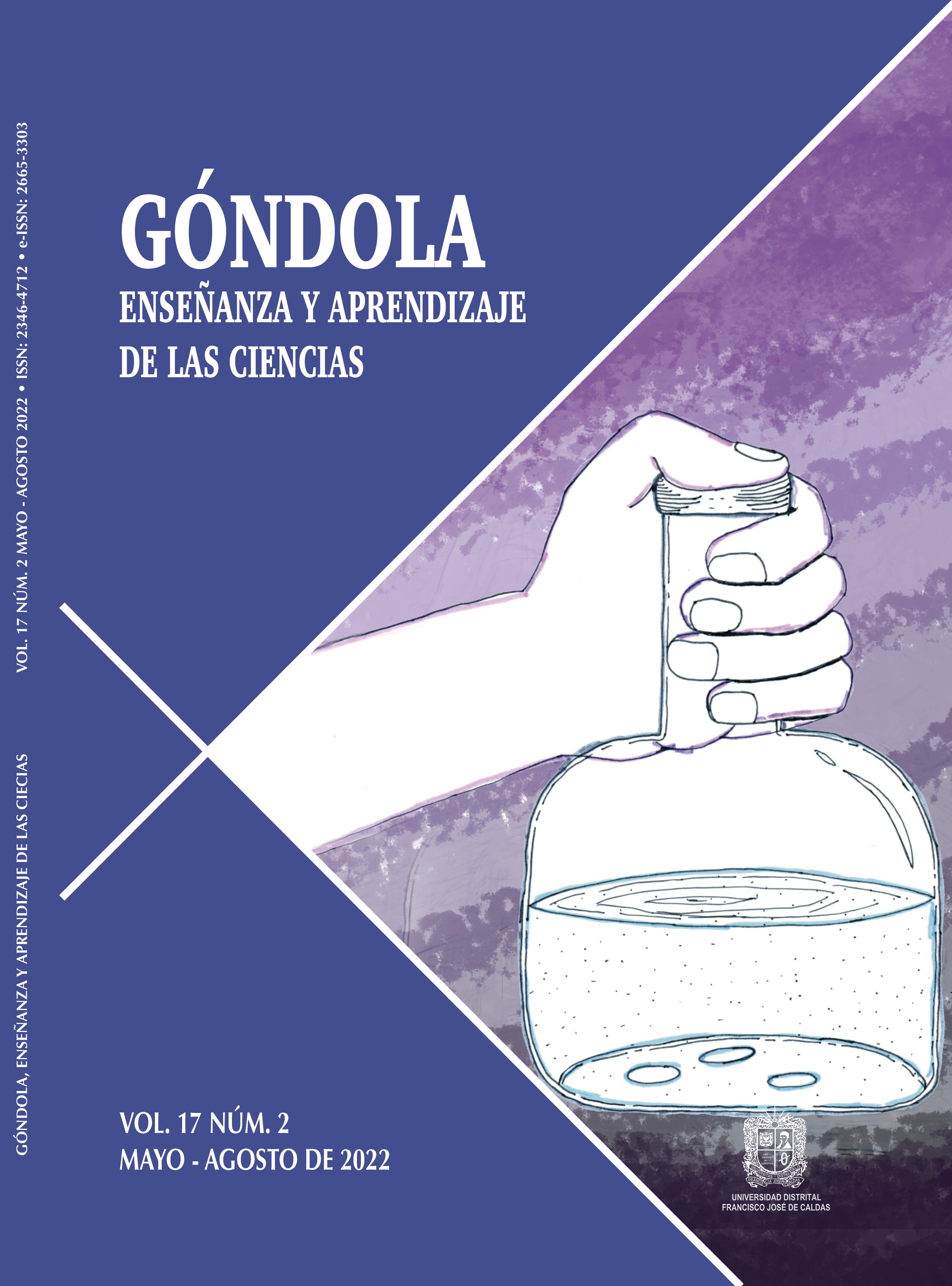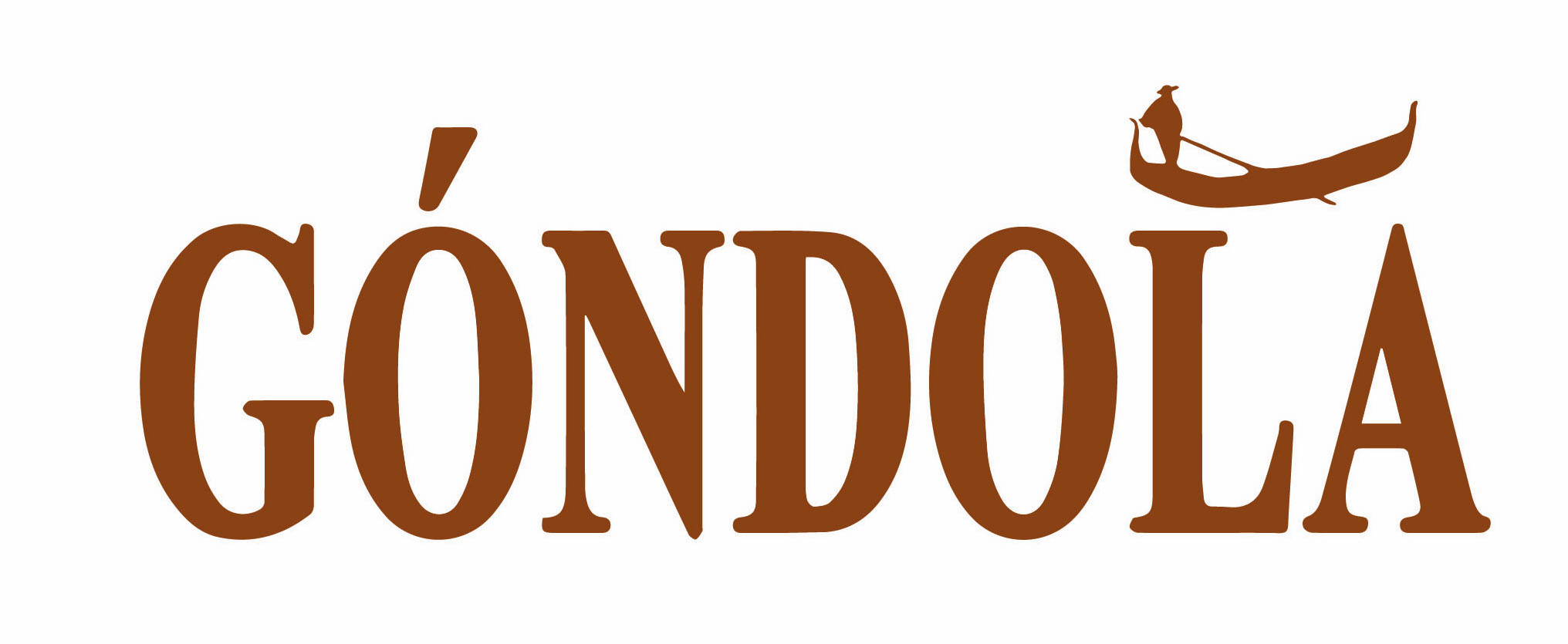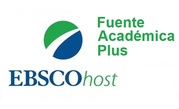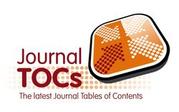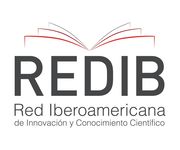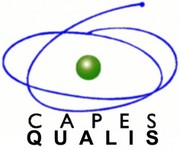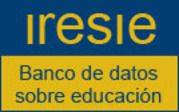DOI:
https://doi.org/10.14483/23464712.18590Published:
2022-06-15Relação Das Crenças De Autoeficácia Com As Emoções, Estratégias De Enfrentamento E Inteligência Emocional Na Formação Inicial De Professores
Relationship Of Self-Efficacy Beliefs With Emotions, Coping Strategies And Emotional Intelligence In Initial Teacher Education
Relación De Las Creencias De Autoeficacia Con Las Emociones, Estrategias De Afrontamiento E Inteligencia Emocional En La Formación Inicial Del Profesorado
Keywords:
COVID-19, Creencias de autoeficacia, Pandemia, Practica docente (es).Keywords:
COVID-19, Compulsory Supervised Internship, Self-efficacy beliefs, Pandemic (en).Keywords:
COVID-19, Estágio Supervisionado Obrigatório, Crenças de Autoeficácia, Pandemia (pt).Downloads
Abstract (pt)
A transição do ensino online durante o bloqueio escolar provocado pelo COVID-19 suscitou desafios para formação inicial de professores, em especial nas disciplinas de práticas pedagógicas. A literatura existente sobre o impacto da pandemia no setor educação é predominantemente descritiva e focada nas dificuldades enfrentadas pelos professores durante o processo de transferência para o ensino online, principalmente no setor de ensino superior, no entanto poucos trabalhos versam sobre as crenças de autoeficácia na formação inicial docente. Considerando o cenário imposto, o objetivo da pesquisa foi avaliar os níveis de autoeficácia, emoções, estratégias de enfrentamento e inteligência emocional em uma amostra de estudantes universitários, e como esses elementos se relaciona as crenças de autoeficácia desse grupo. A amostra foi composta por vinte estudantes matriculados na disciplina de estágio supervisionado obrigatório. Foram realizadas análises descritivas, correlações bivariadas e regressão multivariada. A análise de correlação bivariada mostrou relação inversa significativa entre autoeficácia e raiva, ansiedade, autocrítica e atenção emocional. Além disso, foi encontrada uma correlação direta entre a autoeficácia, a emoção do prazer e as estratégias de reestruturação cognitiva. A análise de regressão multivariada mostrou que as emoções dos professores em formação (prazer, raiva, ansiedade), estratégias de enfrentamento (autocrítica e reestruturação cognitiva) e a inteligência emocional (atenção emocional) foram significativamente relacionados à variável dependente. Em conclusão, este trabalho pode contribuir para um melhor entendimento dos fatores relacionados à percepção geral da crença de autoeficácia em estudantes matriculados nos estágios supervisionados obrigatórios.
Abstract (en)
The transition from online teaching during the school lock-in caused by COVID-19 has raised challenges for initial teacher education, particularly in pedagogical practices subjects. Current literature on the impact of the pandemic in the education sector is predominantly descriptive and focused on the difficulties faced by teachers, during the transfer process to online teaching, especially in higher education, but few works address self-efficacy beliefs in initial teacher education. Considering this context, the main objective of this research was to evaluate the levels of self-efficacy, emotions, coping strategies, and emotional intelligence in a sample of college students and how these elements relate to self-efficacy beliefs in this group. The sample was composed of twenty students enrolled in the mandatory supervised internship course. Descriptive analyses, bivariate correlations, and multivariate regression were performed. Bivariate correlation analysis shows an inverse relationship between self-efficacy and anger, anxiety, self-criticism, and emotional attention. In addition, it presents a correlation between self-efficacy, pleasure emotion, and cognitive restructuring strategies. Multivariate regression analysis showed that trainee teachers' emotions (pleasure, anger, anxiety), coping strategies (self-criticism and cognitive restructuring), and emotional intelligence (emotional attention) were significantly related to the dependent variable. In conclusion, this work may contribute to a better understanding of the overall perception of self-efficacy beliefs in students enrolled in mandatory supervised internships.
Abstract (es)
La transición de la enseñanza en línea durante el encierro escolar provocado por el COVID-19 ha planteado retos para la formación inicial del profesorado, especialmente en las asignaturas de práctica pedagógica. La literatura existente sobre el impacto de la pandemia en el sector educativo es predominantemente descriptiva y se centra en las dificultades a las que se enfrentan los profesores durante el proceso de transferencia a la enseñanza en línea, especialmente en el sector de la educación superior. Sin embargo, pocos trabajos abordan las creencias de autoeficacia en la formación inicial del profesorado. Teniendo en cuenta el escenario impuesto, el objetivo de la investigación fue evaluar los niveles de autoeficacia, las emociones, las estrategias de afrontamiento y la inteligencia emocional en una muestra de estudiantes universitarios, y cómo estos elementos se relacionan con las creencias de autoeficacia en este grupo. La muestra estaba compuesta por veinte estudiantes matriculados en la materia de práctica docente. Se realizaron análisis descriptivos, correlaciones bivariadas y regresión multivariada. El análisis de correlación bivariada mostró una relación inversa significativa entre la autoeficacia, la ira, la ansiedad, la autocrítica y la atención emocional. Además, se encontró una correlación directa entre la emoción de placer de autoeficacia y las estrategias de reestructuración cognitiva. El análisis de regresión multivariada mostró que las emociones de los profesores en prácticas (placer, ira, ansiedad), las estrategias de afrontamiento (autocrítica y reestructuración cognitiva) y la inteligencia emocional (atención emocional) estaban significativamente relacionadas con la variable dependiente. En conclusión, este trabajo contribuye a una mejor comprensión de los factores relacionados con la percepción global de la creencia de autoeficacia en los estudiantes matriculados en prácticas supervisadas obligatorias.
References
ADEYEMO, D. A. Moderating influence of emotional intelligence on the link between academic self-efficacy and achievement of university students. Psychology and developing societies, v. 19, n. 2, p. 199-213, 2007. DOI: https://doi.org/10.1177/097133360701900204
AINI, Q. et al. Exploring E-learning Challenges During the Global COVID-19 Pandemic: A Review. Jurnal Sistem Informasi, v. 16, n. 2, p. 57-65, 2020. DOI: https://doi.org/10.21609/jsi.v16i2.1011
AKGUN, S.; CIARROCHI, J.. Learned resourcefulness moderates the relationship between academic stress and academic performance. Educational Psychology, v. 23, n. 3, p. 287-294, 2003. DOI: https://doi.org/10.1080/0144341032000060129
AL-YAMANI, A. R.; ZU’BI, N. Strategies for coping with psychological stress among a sample of undergraduate students in the faculties of education in the official Jordanian universities. Journal of Al - Quds Open University for Research and Educational and Psychological Studies, 2011.
BANDURA, A. On the functional properties of perceived self-efficacy revisited. 2012.
BANDURA, A. Pensamiento y Acción [thought and action]. Barcelona, Spain: Martínez Roca, 1987.
BEDEWY, D.; GABRIEL, A. Examining perceptions of academic stress and its sources among university students: The Perception of Academic Stress Scale. Health psychology open, v. 2, n. 2, 2015. DOI: https://doi.org/10.1177/2055102915596714
BLANCO, A., B. Creencias de autoeficacia de estudiantes universitarios: un estudio empírico sobre la especificidad del constructo. RELIEVE-Revista Electrónica de Investigación y Evaluación Educativa, v. 16, n. 1, 2010. DOI: https://doi.org/10.7203/relieve.16.1.4149
BODEN, M. T. et al. Are emotional clarity and emotion differentiation related?. Cognition & emotion, v. 27, n. 6, p. 961-978, 2013. DOI: https://doi.org/10.1080/02699931.2012.751899
BROOKS, S. K. et al. The psychological impact of quarantine and how to reduce it: rapid review of the evidence. The lancet, v. 395, n. 10227, p. 912-920, 2020. DOI: https://doi.org/10.1016/S0140-6736(20)30460-8
CABANACH, R. G. et al. Efectos diferenciales de la atención y la claridad emocional sobre la percepción de estresores académicos y las respuestas de estrés de estudiantes de fisioterapia. Fisioterapia, v. 38, n. 6, p. 271-279, 2016. DOI: https://doi.org/10.1016/j.ft.2015.11.003
CABANACH, R. G.; SOUTO-GESTAL, A.; CERVANTES, R. F. Perfiles de regulación emocional y estrés académico en estudiantes de fisioterapia. European Journal of Education and Psychology, v. 10, n. 2, p. 57-67, 2017. DOI: https://doi.org/10.1016/j.ejeps.2017.07.002
CHANG, Ml-L.; DAVIS, H. A. Understanding the role of teacher appraisals in shaping the dynamics of their relationships with students: Deconstructing teachers’ judgments of disruptive behavior/students. In: Advances in teacher emotion research. Springer, Boston, MA, p. 95-127, 2009.
CHAO, R. C. L. Managing stress and maintaining well‐being: Social support, problem‐focused coping, and avoidant coping. Journal of Counseling & Development, v. 89, n. 3, p. 338-348, 2011. DOI: https://doi.org/10.1002/j.1556-6678.2011.tb00098.x
CHAPLAIN, R. P. Stress and psychological distress among trainee secondary teachers in England. Educational Psychology, v. 28, n. 2, p. 195-209, 2008. DOI: https://doi.org/10.1080/01443410701491858
CHARNSIL, C.; NARKPONGPHUN, A.; CHAILANGKARN, K. Post-traumatic stress disorder and related factors in students whose school burned down: Cohort study. Asian journal of psychiatry, v. 51, p. 102004, 2020. DOI: https://doi.org/10.1016/j.ajp.2020.102004
CREGO, A. et al. Stress and academic performance in dental students: the role of coping strategies and examination‐related self‐efficacy. Journal of dental education, v. 80, n. 2, p. 165-172, 2016. DOI: https://doi.org/10.1002/j.0022-0337.2016.80.2.tb06072.x
DE LA FUENTE, J. et al. Applying the SRL vs. ERL theory to the knowledge of achievement emotions in undergraduate university students. Frontiers in psychology, v. 10, p. 2070, 2019. DOI: https://doi.org/10.3389/fpsyg.2019.02070
FONTELLES, M. J. et al. Metodologia da pesquisa científica: diretrizes para a elaboração de um protocolo de pesquisa. Revista paraense de medicina, v. 23, n. 3, p. 1-8, 2009.
FRENZEL, A. C. et al. Measuring teachers’ enjoyment, anger, and anxiety: The Teacher Emotions Scales (TES). Contemporary Educational Psychology, v. 46, p. 148-163, 2016. DOI: https://doi.org/10.1016/j.cedpsych.2016.05.003
HAGENAUER, G.; HASCHER, T.; VOLET, S. E. Teacher emotions in the classroom: associations with students’ engagement, classroom discipline and the interpersonal teacher-student relationship. European journal of psychology of education, v. 30, n. 4, p. 385-403, 2015. DOI: https://doi.org/10.1007/s10212-015-0250-0
HOUSTON, D.; MEYER, L. H.; PAEWAI, S. Academic staff workloads and job satisfaction: Expectations and values in academe. Journal of higher education policy and management, v. 28, n. 1, p. 17-30, 2006. DOI: https://doi.org/10.1080/13600800500283734
HOY, A. W.; SPERO, R. B. Changes in teacher efficacy during the early years of teaching: A comparison of four measures. Teaching and teacher education, v. 21, n. 4, p. 343-356, 2005. DOI: https://doi.org/10.1016/j.tate.2005.01.007
JIANG, Z. Emotional intelligence and career decision‐making self‐efficacy: national and gender differences. Journal of employment counseling, v. 51, n. 3, p. 112-124, 2014. DOI: https://doi.org/10.1002/j.2161-1920.2014.00046.x
JOHNSON, S.; COOPER, C.; CARTWRIGHT, S.; DONALD, I.; TAYLOR, P. E MILLET, C. The experience of work ‐ related stress across occupation. Journal of Managerial Psychology, Vol. 20 No. 2, p. 178-187, 2005. DOI; https://doi.org/10.1108/02683940510579803
KONG, F. et al. How is emotional intelligence linked to life satisfaction? The mediating role of social support, positive affect and negative affect. Journal of Happiness Studies, v. 20, n. 8, p. 2733-2745, 2019. DOI: https://doi.org/10.1007/s10902-018-00069-4
KYRIACOU, C. Teacher stress: Directions for future research. Educational review, v. 53, n. 1, p. 27-35, 2001. DOI: https://doi.org/10.1080/00131910120033628
LAZARUS, R. S.; FOLKMAN, S. Cognitive theories of stress and the issue of circularity. In: Dynamics of stress. Springer, Boston, MA, 1986. p. 63-80.
LAZARUS, R. S.; LAZARUS, R. S. Emotion and adaptation. Oxford University Press on Demand, 1991.
LI, Y.; PENG, J. Coping Strategies as Predictors of Anxiety: Exploring positive experience of Chinese university in health education in COVID-19 pandemic. Creative Education, v. 11, n. 5, p. 735-750, 2020. DOI: http://10.4236/ce.2020.115053
LILJESTROM, A.; ROULSTON, K.; DEMARRAIS, K.. “There's no place for feeling like this in the workplace”: women teachers' anger in school settings. In: Emotion in education. Academic Press, 2007. p. 275-291.
LIU, X.; LIU, J.; ZHONG, X. Psychological state of college students during COVID-19 epidemic. Available at SSRN 3552814, 2020. DOI: http://dx.doi.org/10.2139/ssrn.3552814
MARTÍNEZ-SARMIENTO, L. F.; GONZÁLEZ, M. L. G. Utilización de la plataforma virtual Moodle para el desarrollo del aprendizaje autorregulado en estudiantes universitarios. Educar, v. 55, n. 2, p. 479-498, 2019. DOI: https://doi.org/10.5565/rev/educar.883
MIKOLAJCZAK, M. et al. If you can regulate sadness, you can probably regulate shame: Associations between trait emotional intelligence, emotion regulation and coping efficiency across discrete emotions. Personality and individual differences, v. 44, n. 6, p. 1356-1368, 2008. DOI: https://doi.org/10.1016/j.paid.2007.12.004
MODELSKI, D.; GIRAFFA, L. M. M; CASARTELLI, A. O. Tecnologias digitais, formação docente e práticas pedagógicas. Educação e Pesquisa, v. 45, 2019. DOI: https://doi.org/10.1590/S1678-4634201945180201
MULHOLLAND, J.; WALLACE, J. Teacher induction and elementary science teaching: Enhancing self-efficacy. Teaching and teacher education, v. 17, n. 2, p. 243-261, 2001. DOI: https://doi.org/10.1016/S0742-051X(00)00054-8
NAVARRO-MATEU, D. et al. I’m Not Good for Anything and That’s Why I’m Stressed: analysis of the effect of self-efficacy and emotional intelligence on student stress using SEM and QCA. Frontiers in psychology, v. 11, p. 295, 2020. DOI: https://doi.org/10.3389/fpsyg.2020.00295
NEUMANN, Sofía et al. Formação de professores em nível médio: um estudo de caso sobre o ensino de ciências. Góndola, Enseñanza y Aprendizaje de las ciencias (Bogotá, Colombia), v. 13, n. 1, p. 120-120, 2018. DOI: http://doi.org/10.14483/23464712.12259
PIERCEALL, E. A.; KEIM, M. C. Stress and coping strategies among community college students. Community College Journal of Research and Practice, v. 31, n. 9, p. 703-712, 2007. DOI: https://doi.org/10.1080/10668920600866579
ROY, D. et al. Study of knowledge, attitude, anxiety & perceived mental healthcare need in Indian population during COVID-19 pandemic. Asian journal of psychiatry, v. 51, p. 102083, 2020. DOI: https://doi.org/10.1016/j.ajp.2020.102083
RUIZ‐ARANDA, D.; EXTREMERA, N.; PINEDA‐GALAN, C. Emotional intelligence, life satisfaction and subjective happiness in female student health professionals: the mediating effect of perceived stress. Journal of psychiatric and mental health nursing, v. 21, n. 2, p. 106-113, 2014. DOI: https://doi.org/10.1111/jpm.12052
SÁNCHEZ, I. D. R.; GARCÍA, M. L. B. Autoeficacia en estudiantes universitarios: diferencias entre el grado de maestro en educación primaria y los grados en ciencias. International Journal of Developmental and Educational Psychology, v. 1, n. 1, p. 115-123, 2017.
SCHUNK, D. H.; PAJARES, F. The development of academic self-efficacy. In: Development of achievement motivation. Academic Press, p. 15-31, 2002.
SHEN, Y. E. Relationships between self‐efficacy, social support and stress coping strategies in Chinese primary and secondary school teachers. Stress and Health: Journal of the International Society for the Investigation of Stress, v. 25, n. 2, p. 129-138, 2009. DOI: https://doi.org/10.1002/smi.1229
SKAALVIK, E. M.; SKAALVIK, S. Dimensions of teacher self-efficacy and relations with strain factors, perceived collective teacher efficacy, and teacher burnout. Journal of educational psychology, v. 99, n. 3, p. 611, 2007. DOI: https://doi.org/10.1037/0022-0663.99.3.611
SUÁREZ, P. S.; GARCÍA, A. M. P.; MORENO, J. B. Escala de autoeficacia general: datos psicométricos de la adaptación para población española. Psicothema, v. 12, n. Su2, p. 509-513, 2000.
TALSMA, K. et al. COVID-19 beliefs, self-efficacy and academic performance in first-year university students: Cohort comparison and mediation analysis. Frontiers in Psychology, v. 12, p. 2289, 2021. DOI: https://doi.org/10.3389/fpsyg.2021.643408
TAYLOR, S. et al. Reactions to COVID-19: Differential predictors of distress, avoidance, and disregard for social distancing. Journal of Affective Disorders, v. 277, p. 94-98, 2020. DOI: https://doi.org/10.1016/j.jad.2020.08.002
TENENTE, L. Sem internet, merenda e lugar para estudar: veja obstáculos do ensino à distância na rede pública durante a pandemia de Covid-19. Globo. 2020.
TOBIN, D. L. et al. The hierarchical factor structure of the Coping Strategies Inventory. Cognitive therapy and research, v. 13, n. 4, p. 343-361, 1989.
USHER, E. L.; PAJARES, F. Sources of academic and self-regulatory efficacy beliefs of entering middle school students. Contemporary educational psychology, v. 31, n. 2, p. 125-141, 2006. DOI: https://doi.org/10.1016/j.cedpsych.2005.03.002
VANCOUVER, J. B. Self-efficacy’s role in unifying self-regulation theories. In: Advances in motivation science. Elsevier, 2018. p. 203-230. DOI: https://doi.org/10.1016/bs.adms.2018.01.005
WORLD HEALTH ORGANIZATION, “‘Solidarity’ clinical trial for COVID-19 treatments”, World Health Organization (WHO). Situation reports, WHO, Geneva, available at, 2020. Disponível em: www.who.int/emergencies/diseases/novel-coronavirus-2019/global-research-on-novel-coronavirus-2019-ncov/solidarity-clinical-trial-for-covid-19-treatments. Acesso em: 05 julho 2021.
XIAO, C. A novel approach of consultation on 2019 novel coronavirus (COVID-19)-related psychological and mental problems: Structured letter therapy. Psychiatry Investigation v. 17, n. 2, p. 175-176, 2020.
How to Cite
APA
ACM
ACS
ABNT
Chicago
Harvard
IEEE
MLA
Turabian
Vancouver
Download Citation
License
Copyright (c) 2022 Autor y Góndola. Enseñanza y Aprendizaje de las Ciencias

This work is licensed under a Creative Commons Attribution-NonCommercial-NoDerivatives 4.0 International License.
Gondola, Ens Aprend Cienc. is an open-access publication, free of charge for authors and readers. The publication, consultation or download of the contents of the magazine does not generate any cost for the authors or the readers, since the Francisco José de Caldas District University assumes the expenses related to edition, management and publication. The peer evaluators do not receive any economic retribution for their valuable contribution. The work of all the actors mentioned above is understood as a contribution to the strengthening and growth of the research community in the field of Science Education.
As of December 1, 2018 the contents of the journal are published under the terms of the Creative Commons License Attribution-Noncommercial- ShareAlike 4.0 International (CC-BY-NC-SA 4.0), under which others may distribute, remix, retouch, and create from the work in a non-commercial way, give credit and license their new creations under the same conditions.
The copyright holders are the authors and the journal Gondola, Ens Aprend Cienc. The holders retain all rights without restrictions, respecting the terms of the license in terms of consultation, downloading and distribution of the material.
When the work or any of its elements is in the public domain according to the applicable law in force, this situation will not be affected by the license.
Likewise, we encourage authors to deposit their contributions in other institutional and thematic repositories, with the certainty that culture and knowledge is a good of all and for all.

